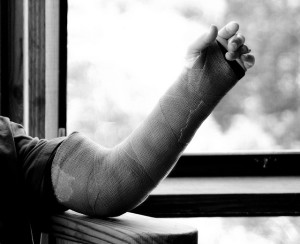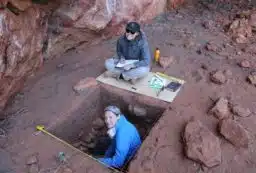
Credit: James Lee (Flickr creative commons)
Growth spurts can make any teenager a bit clumsy, but for some, clumsiness is an indication of Developmental Coordination Disorder (DCD). Perth researchers have now shown that people with this condition may be at risk of poor bone health and fractures later in life.
“Teenagers with this disorder are likely to be less physically active,” says Dr Paola Chivers, a research & biostatistics officer at The University of Notre Dame. “And physical activity helps to build bone strength during adolescence, specifically muscle load on bones.”
Paola is trialling a weight bearing exercise program to improve bone health and mineral density through the adolescent years as part of an ongoing project.
“I have found that adolescents with DCD not only have low bone density, but also have higher rates of fractures compared to the their peers,” says Paola. “Currently, we don’t know what the long term implications are for poorer bone health in adolescents with DCD and whether there is a link with osteoporosis in later life.”
“I hope to determine whether participating in an ongoing exercise program has any impact on their bone health.”
Paola presented her research at Fresh Science WA 2015. Fresh Science is a national program that helps early-career researchers find and share their stories of discovery. Over 20 early-career researchers nominated for Fresh Science WA, which was held at the Western Australian Museum (training) and the Brisbane Hotel (public challenge event) and was supported by the Western Australian Museum, Curtin University, Edith Cowan University, Murdoch University, the University of Western Australia and the University of Notre Dame, Australia.
Contact: Paola Chivers, Institute for Health Research, The University of Notre Dame Australia, paola.chivers@nd.edu.au





 Fresh Science is on hold for 2022. We will be back in 2023.
Fresh Science is on hold for 2022. We will be back in 2023.